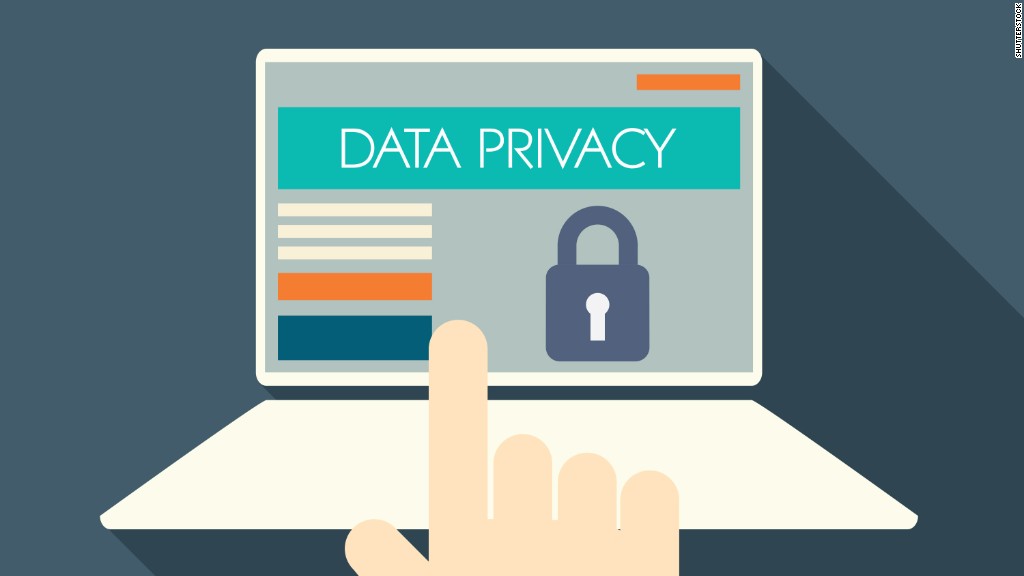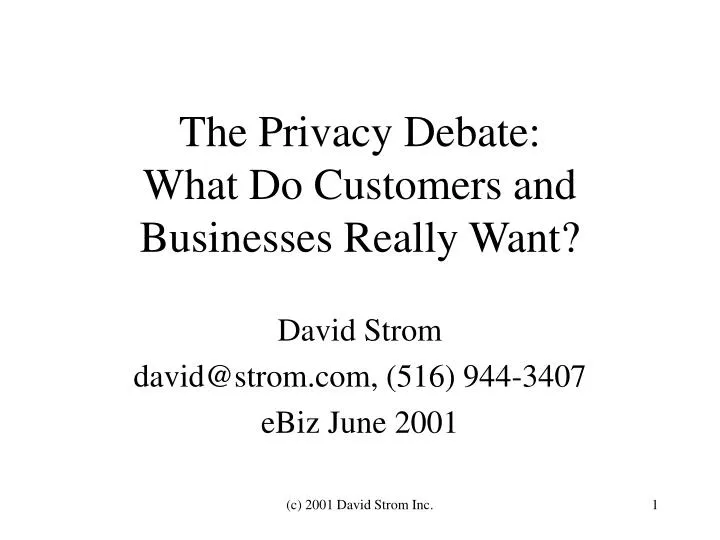

There are also several governmental organizations that protect an individual's privacy and anonymity on the Internet, to a point. When filling out forms and buying merchandise, information is tracked and because it was not private, some companies send Internet users spam and advertising on similar products. In order to keep their information private, people need to be careful with what they submit to and look at online. In that case, they may try to achieve Internet anonymity to ensure privacy - use of the Internet without giving any third parties the ability to link the Internet activities to personally-identifiable information of the Internet user. On the other hand, some people desire much stronger privacy. The revelation of IP addresses, non-personally-identifiable profiling, and similar information might become acceptable trade-offs for the convenience that users could otherwise lose using the workarounds needed to suppress such details rigorously. Internet users may protect their privacy through controlled disclosure of personal information. People with only a casual concern for Internet privacy need not achieve total anonymity. With the rise of the internet and mobile networks internet privacy is a daily concern for users. In the United States, the 1997 Information Infrastructure Task Force (IITF) created under President Clinton defined information privacy as "an individual's claim to control the terms under which personal information - information identifiable to the individual - is acquired, disclosed, and used." At the end of the 1990s, with the rise of the internet, it became clear that governments, companies, and other organizations would need to abide by new rules to protect individuals' privacy. Information privacy is in regards to the collection of user information from a variety of sources. In terms of space, individuals have an expectation that their physical spaces (e.g.

Law Professor Jerry Kang explains that the term privacy expresses space, decision, and information. Internet privacy is primarily concerned with protecting user information. Internet and digital privacy are viewed differently from traditional expectations of privacy.

It has been suggested that the "appeal of online services is to broadcast personal information on purpose." On the other hand, in his essay "The Value of Privacy", security expert Bruce Schneier says, "Privacy protects us from abuses by those in power, even if we're doing nothing wrong at the time of surveillance." Levels of privacy Other forms of PII may soon include GPS tracking data used by apps, as the daily commute and routine information can be enough to identify an individual. For example, age and physical address alone could identify who an individual is without explicitly disclosing their name, as these two factors are unique enough to identify a specific person typically. PII refers to any information that can be used to identify an individual. Privacy can entail either personally identifiable information (PII) or non-PII information such as a site visitor's behavior on a website. Privacy concerns have been articulated from the beginnings of large-scale computer sharing and especially relate to mass surveillance enabled by the emergence of computer technologies. Internet privacy is a subset of data privacy. Internet privacy involves the right or mandate of personal privacy concerning the storing, re-purposing, provision to third parties, and displaying of information pertaining to oneself via Internet. Right or mandate of personal privacy concerning the internet


 0 kommentar(er)
0 kommentar(er)
